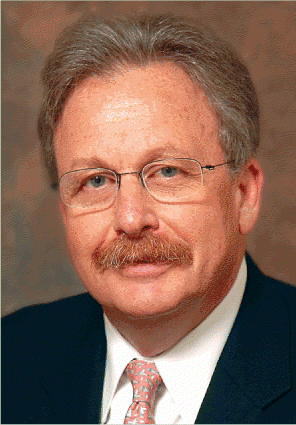PHOENIX-Mentors seem to be a dying breed, but they shouldn’t be. Indeed, the importance of mentors was stressed in the Triological Society’s Presidential Address by Myles L. Pensak, MD, at the recent Combined Otolaryngological Spring Meeting here.
Explore This Issue
July 2009Very often we have positions or people in positions of power and authority who are completely clueless about the role of mentors, and we have many of our younger colleagues and folks in mid-career who have absolutely no idea how to work as mentees, he said. And this decline in mentoring is someshat reflective of a bankruptcy in leadership in medicine.
Doctors do well in their profession both financially and in terms of having a good standard of living. There are few careers that are as rewarding.
But, citing Winston Churchill, he noted, it is more by what we give than what we get that really determines the measure of a life. Doctors need to think about what they can give back to society, in general. And part of that is encouraging a legacy of physicians who have learned not only good medicine, but a good ethic as well.
 Very often we have positions or people in positions of power and authority who are completely clueless about the role of mentors, and we have many of our younger colleagues and folks in mid-career who have absolutely no idea how to work as mentees.
Very often we have positions or people in positions of power and authority who are completely clueless about the role of mentors, and we have many of our younger colleagues and folks in mid-career who have absolutely no idea how to work as mentees.
-Myles L. Pensak, MD
Mentors are generally posited as models, counselors, advisors, and nurturers, both professionally and in their familial and social lives. It is recommended that the mentee seek out the mentor, but with the way medicine works these days, that can be emotionally difficult and pragmatically challenging.
Moreover, medicine has evolved (or devolved) into a culture that is predicated on a fairly mono-by-mono and macho phenomenon. The idea of acknowledging that you need support or guidance, that you are seeking advice, is often seen by our leaders as a point of weakness, and folks tend to avoid it, Dr. Pensak said. This is a mistake, because people can really learn from each other by having productive exchanges of information. No one person can know everything.
Why Be a Mentor?
A reason to be a mentor is to pass on knowledge and skills to the next generation. Not everything can be learned in the classroom, online, or from a textbook. There are many aspects to medicine that aren’t written down, or can best be learned by being there in person.
Leave a Reply